This ultimate guide lists 20 of the best vegan protein substitutes, making it easy to ensure you are still getting the all-important protein in your diet.
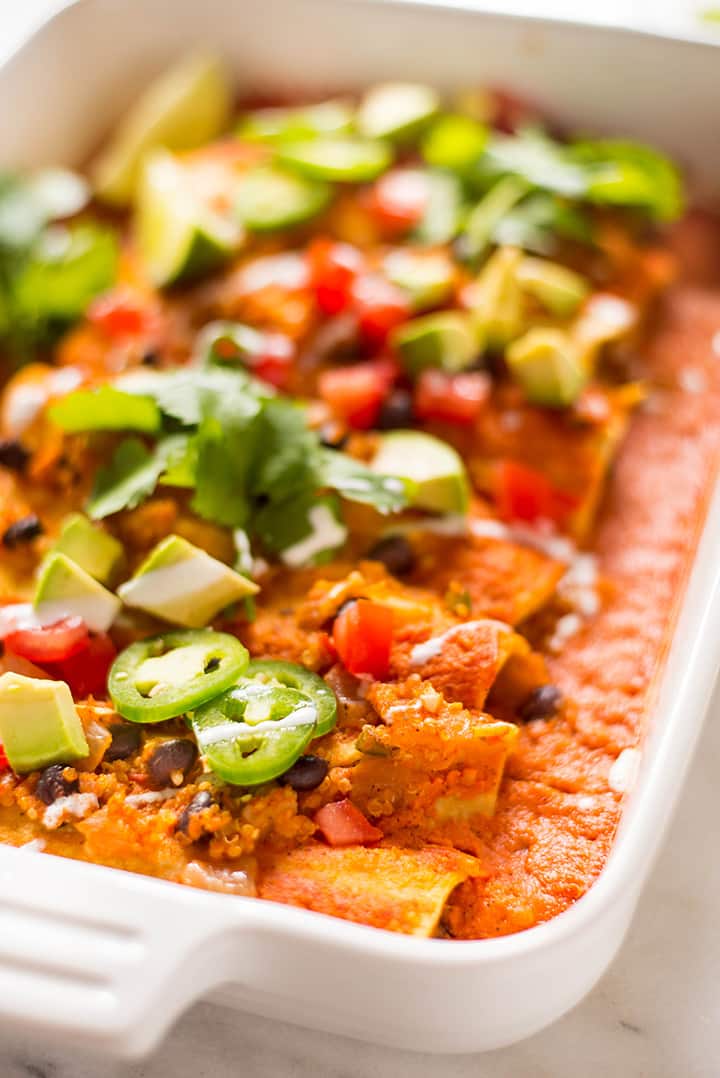
More people today are looking for vegan and vegetarian options when planning their meals for the week.
I’m totally into meal planning, and I’ll go for vegan or vegetarian dishes once in a while, too. Not only are vegan meals good for the planet, but they are also good for you.
Eating clean, making sure your daily meals have lots of green (think awesome mason jar salads prepped and ready in the fridge!), and including tons of variety are great ways to live a healthy lifestyle.
Choosing vegan protein options isn’t complicated once you know which ones are best. But it is important to know that plant-based proteins aren’t all the same.
Knowing which vegan protein substitutes are the best will help ensure that you get all of the amino acids found in protein. Because these proteins are needed to keep your body functioning at optimum levels. Proteins (both animal and plant-based) are made up of 20 amino acids. Nine of them are called “essential amino acids” and must be obtained by dietary means.
That’s why the right protein sources are so important. I’m going to answer some of your top questions on proteins, so read on to learn more.
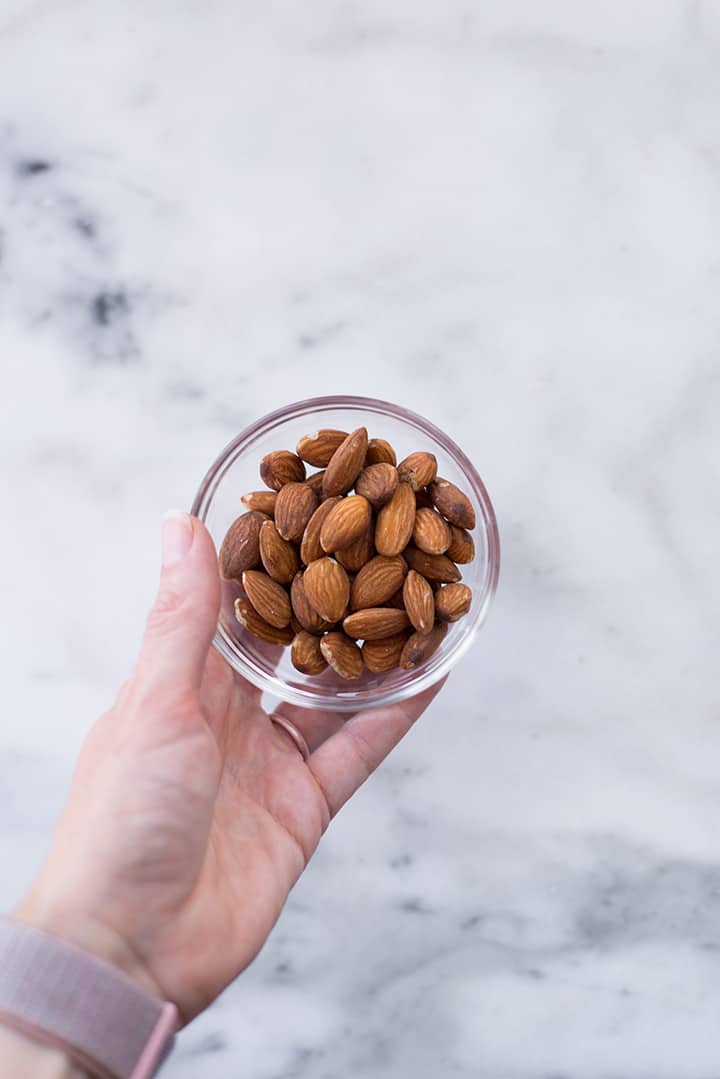
WHY IS PROTEIN IMPORTANT?
Protein is one of the three macronutrients, namely carbs, fat, and protein. Sources of energy and crucial to growth, macros are simply the basis for calories. You can make progress toward your best health by simply calculating and working with your macros. BTW, and I’ve made it easy in this post.
Eating protein does a lot of good things for the body. How? Well, almost every part of the body has protein as a component – your hair, skin, blood, and so on. That’s why protein is called a building block of the body. It plays a big part.
If you want to lose weight, protein helps you feel full, allowing you to stay away from unhealthy snacks between meals. If you are a fan of exercise and looking to build muscle while reducing fat, protein is there to help you with that as well.
If you are someone who doesn’t eat animal products or are looking to reduce your consumption for any reason, you should plan ahead to ensure that you get a healthy amount of protein every day.
Why? Protein is essential, folks. If you don’t get enough, you lose muscle mass. Your body can’t repair properly when there is an injury. You could even experience bone fractures more easily when deprived of protein. So, all in all, protein must be a part of your diet every day.
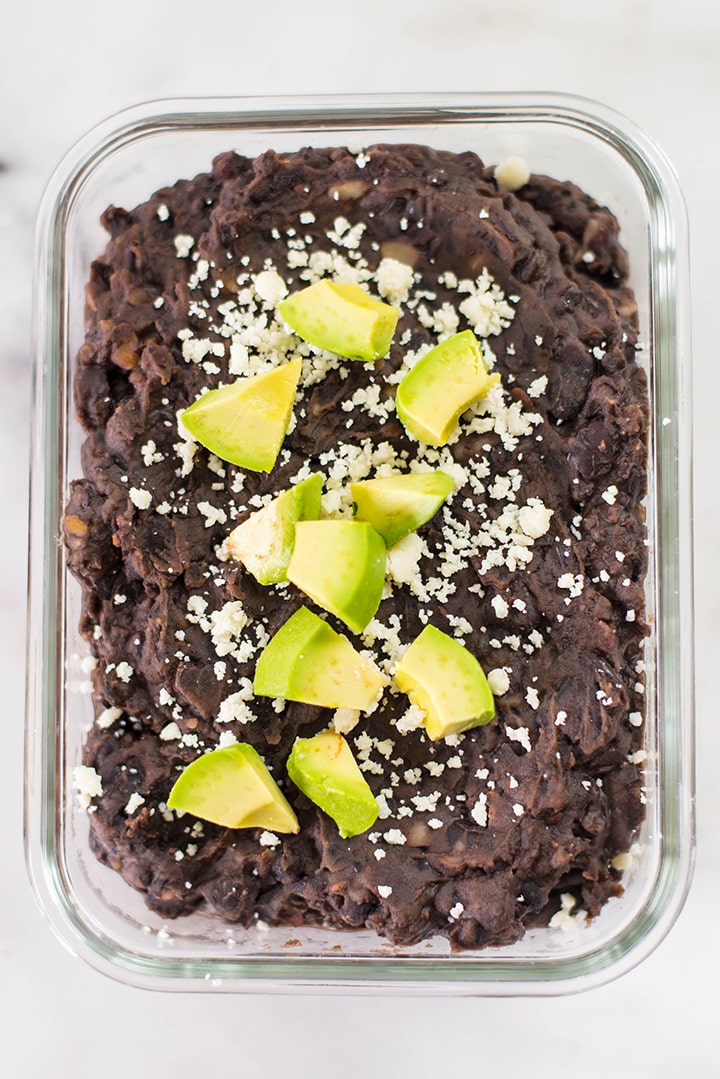
BENEFITS OF PROTEIN
Before I tell you about the best vegan protein substitutes, I want to point out the functions of protein. Don’t allow your protein intake to be lacking. There are lots of ways to easily sneak this super-nutrient into your day. Eat yummy protein bars, whip up a grab and go protein smoothie, or make sure that your afternoon break includes a high-protein snack.
- Protein, along with fat and carbs, provides energy
- Hormones that signal processes to organs rely on protein
- Protein helps your tissues and cells grow and repair
- Immunity is boosted by protein
- Components of the body like enzymes and hemoglobin are benefitted by protein
HOW MUCH PROTEIN DO I NEED?
There is a simple formula to calculate your protein requirements. It’s an excellent way to quickly gauge how much you should aim for. If you weight 145 pounds, your recommended daily requirement of protein is 52 grams. How did we get to that figure? Multiply your weight by 0.36, which is the formula used at a protein summit in Washington, DC, in 2007. Forty nutritionists met to discuss the role of protein in health.
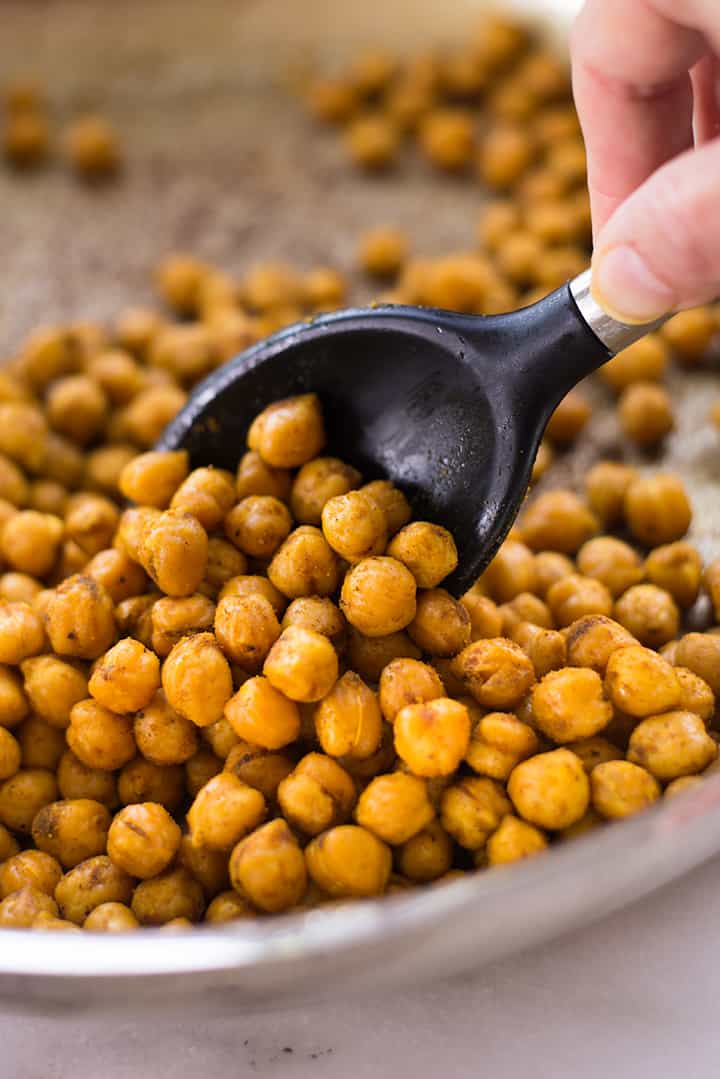
CAN VEGANS GET COMPLETE PROTEINS?
Vegans can totally get the complete protein requirements needed daily. You may have noticed I said complete proteins. Let me explain that a little further.
Amino acids are considered the all-important building blocks of protein. There are 22, 13 of which the body produces on its own. The other 9 are taken from the food we eat.
A complete protein contains the 9 essential amino acids needed to build protein. Not all plant-based proteins are complete, but you can combine foods to make them whole. Although animal proteins are the richest source of complete proteins, you can definitely make it work with vegan protein substitutes. Some combos that make a complete protein are:
- Nut butter on whole-wheat toast
- A whole-grain roll and lentil soup
- Rice and beans eaten together
- Oatmeal topped with pumpkin seeds
Just for your info, combining the incomplete proteins at the same meal is not needed. As long as you have a variety of plant-based proteins daily, you should have your bases covered as far as your essential amino acids.
Briefly, some of the purposes of the 9 amino acids are explained here. You’ll see just how vital eating protein daily is.
- Formation of hemoglobin
- Help skin and bones heal
- Reduce muscle breakdown
- Produce red and white blood cells
- Inhibit viruses
- Reduce cholesterol levels
- Enhance learning and alertness
- Prevent fatty buildup in the liver
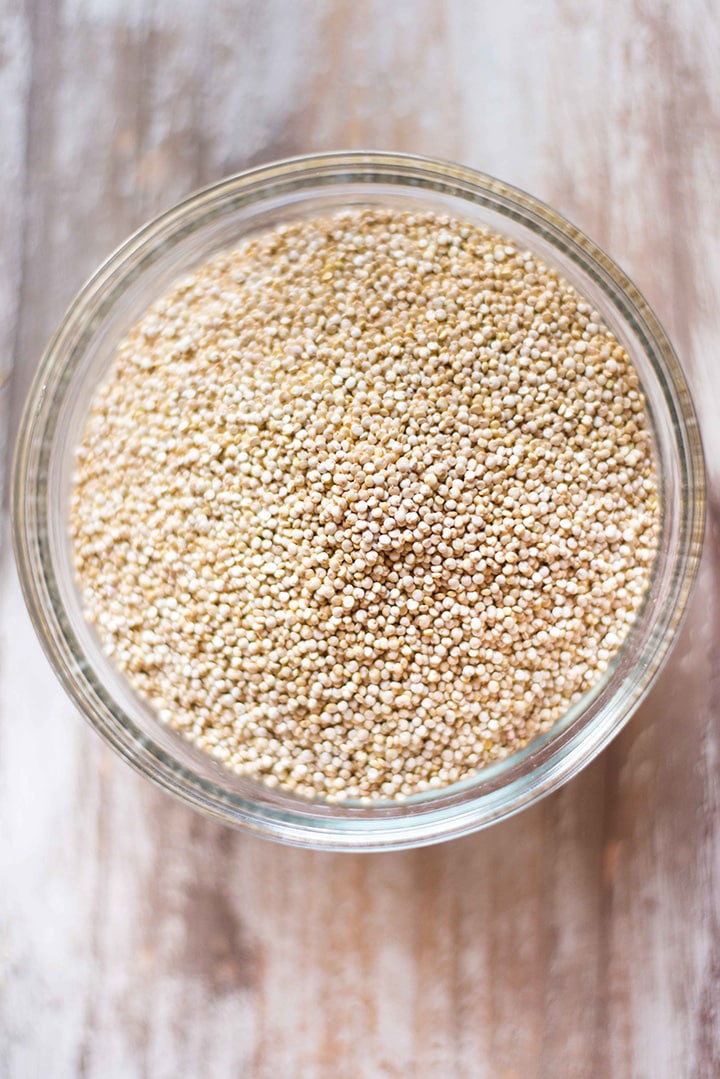
TOP VEGAN PROTEIN SUBSTITUTES
Quinoa and soy are the only 2 plant-based proteins that have all of the 9 necessary amino acids. However, if you are not a fan of these foods or have an intolerance, you can look to the additional sources also listed below.
1. QUINOA
In a one cup serving of quinoa, you will get 8 grams of protein. Quinoa is a complete protein, as I mentioned, and is considered a pseudocereal because it does not grow from grasses like other cereal grains. Quinoa is a great source of fiber, magnesium, iron, and more. Quinoa is good at any time of day, even for breakfast!
2. TOFU
Tofu, made from soy, is probably one of the most well-known vegan protein substitutes. Before veganism became as prominent as it is today and being a vegetarian was more well known, tofu was the go-to substitute for meat. Tofu takes on the flavors of the spices and sauces it is cooked with, so it is pretty versatile. A half-cup serving has 11 grams of protein.
3. BUCKWHEAT
Buckwheat is gluten-free and also a pseudocereal. It has 6 grams of protein per one cup serving. The health benefits are many, and this protein is considered anti-inflammatory, anticancer, and beneficial to cholesterol levels. The flavonoids in buckwheat are thought to be responsible for its excellent value.
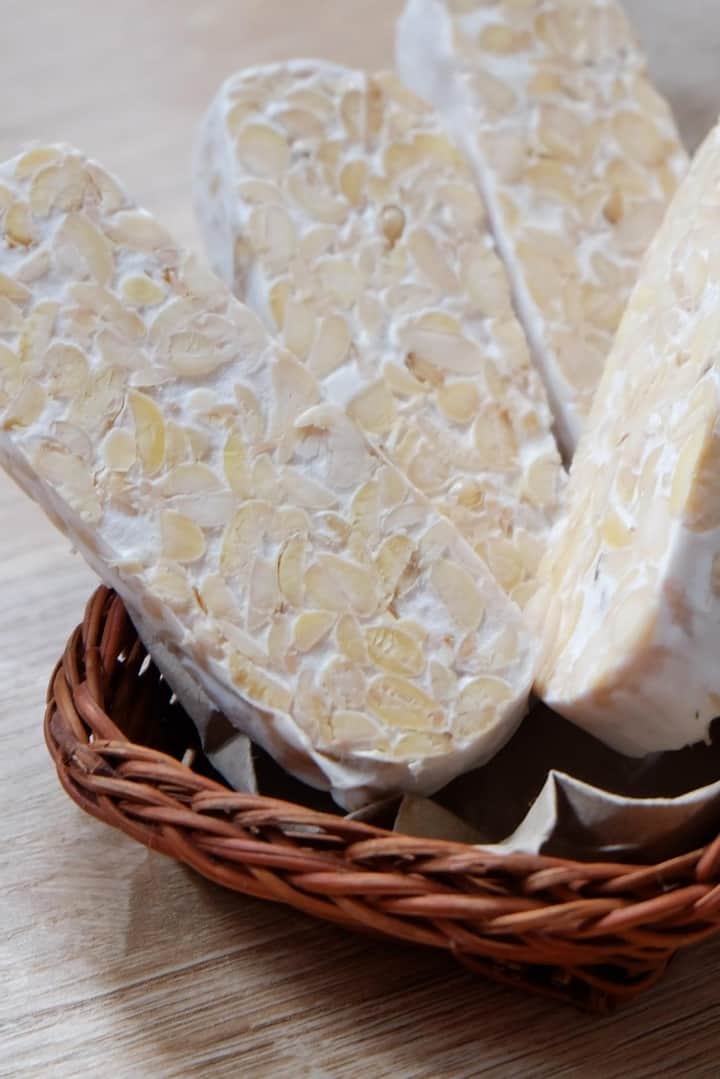
4. TEMPEH
Tempeh is packed with protein at 15 grams per half cup. Like tofu, tempeh is made from soybeans. The flavor is described as nutty, and it is used in soups, chilis, and even burgers. Tempeh is also considered a probiotic food. Read more about tempeh and other excellent sources of fermented foods.
5. EDAMAME
Edamame beans are kind of sweet. They are immature soybeans and contain 8.5 grams of protein in half a cup. Top your salads with these little protein nuggets for an easy to add boost.
6. LENTILS
Lentils have close to 9 grams of protein in a half cup. They are a great source of fiber, too. Having adequate fiber in your diet is essential for good health. Adequate fiber intake can lower your cholesterol and a whole lot more. For the nitty-gritty on how good fiber is for you and how to get more, read my post here.
7. BEANS
When I say beans, I’m including pinto, kidney, and black beans. Chickpeas are also a bean – you may have heard them called garbanzo beans. Beans contain around 15 grams of protein per cooked cup. That’s why vegans and vegetarians rely on beans as an excellent addition to their eating regimen. They’ve got a ton of vitamins and minerals, too. Try my instant pot black beans ← delicious!
8. GREEN PEAS
When you look at the ingredients in protein powder, you’ll often see pea protein. Peas have 9 grams of protein in a cooked cup serving. Like lentils, they have lots of fiber and are great for adding iron to your day.
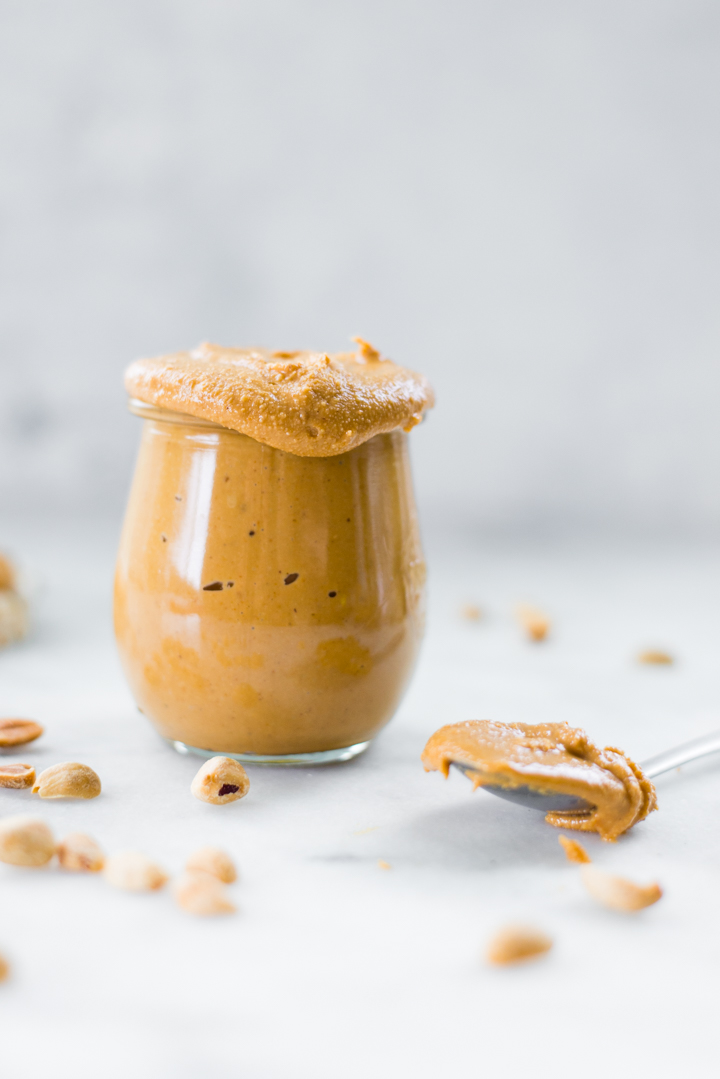
9. NUTS AND SEEDS
This is a pretty broad category. Both nuts and seeds have tons of benefits. Off the top of my head, I think of chia seeds. They are good for your heart and your bone health. To learn the 11 benefits of this awesome seed, read my post. As for nuts, well, you’ve got almonds, walnuts, and peanuts, to name a few. Peanuts, for example, have 20.5 grams of protein per one half cup. I like to make peanut butter as a yummy source of protein. My recipe has honey, but you could use maple syrup instead to keep it pure vegan.
10. SPIRULINA
Spirulina typically comes as a powder or supplement. Add it to your favorite smoothie or top your salad with it. Not only is spirulina a good plant-based protein source, but it also has anti-inflammatory properties and boosts your immunity.
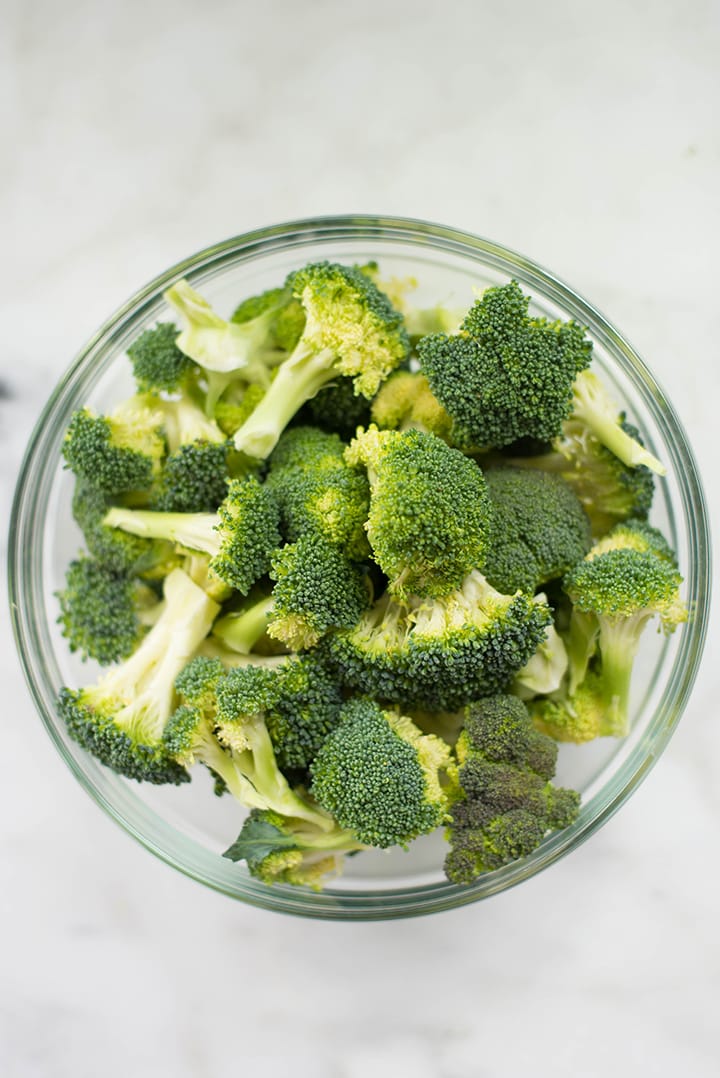
11. POTATOES AND OTHER PROTEIN-RICH VEGGIES
There are many vegetables with protein. Broccoli, mushrooms, kale, and baked potatoes are just a few. Make a salad with broccoli flowerets, kale, spinach, and beans sprouts. Top it with quinoa and chia seeds. That’s a protein-packed salad!
12. PROTEIN-RICH FRUITS
Although the protein count is lower, you can rely on some of the common fruits for a boost. Every now and then, grab a banana or nectarine, or toss a handful of blackberries on a serving of overnight oats.
13. OATS AND OATMEAL
Another great combo of fiber and protein is oats. Not only do they have about 10 grams in a cup serving, but they also have iron, zinc, B vitamins, and phosphorous. They are considered the healthiest grain.
14. SEITAN
Wheat gluten is the main component of seitan, so it is not a suitable vegan protein substitute for those intolerant to gluten or celiac sufferers. Two ounces of seitan has 15 grams of protein. Veggie burgers and other meat alternatives often contain seitan.
15. TEXTURED VEGETABLE/SOY PROTEIN
Defatted soy flour undergoes pressure cooking and dehydration to become textured vegetable/soy protein. It’s similar to tofu in that it does not have a lot of flavor, making it an excellent addition to many dishes. The protein content in a one quarter cup is 12 grams.
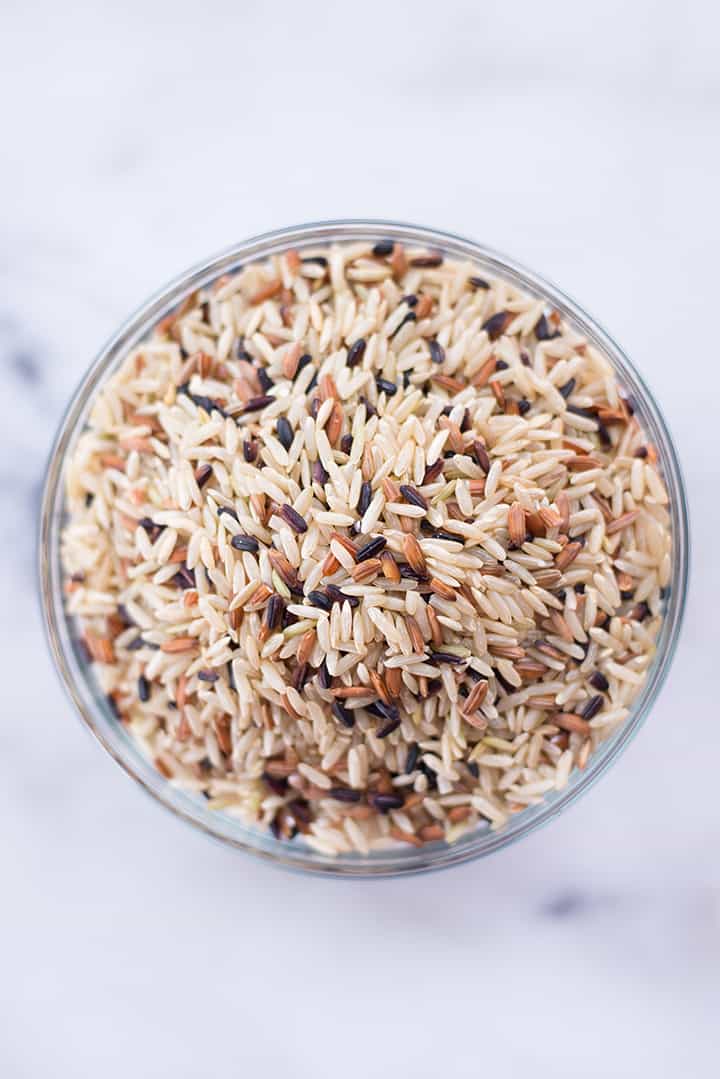
16. GRAINS
Grains like wild rice, brown rice, and barley do contain protein. I would suggest using them as a complement to your other vegan and vegetarian protein choices. Wild rice is not stripped of the bran, which means it packs a decent amount of fiber per serving. As for protein, one cooked cup has 7 grams of protein. Make a point to rinse the rice before cooking because there is some concern about the trace toxic element arsenic if eaten often.
17. SOY MILK
Many vegans and vegetarians turn to soy milk as a replacement for dairy. One cup of soy milk has 7 grams of protein and is also a great way to add calcium and vitamin D to your diet. Studies show that soy may help your mood and benefit your skin, among other things.
18. EZEKIEL BREAD
Sprouted whole grains and good-for-you legumes are used to make Ezekiel bread. Lentils, barley, spelt, and millet are other healthy ingredients. Two slices can contain 8 grams of protein. Ezekiel bread, because of the sprouted grains, has the all-important lysine and tryptophan, two of the 9 essential amino acids obtained in plant-based foods.
19. SPELT
Spelt is an ancient grain with a hefty protein content. One cooked cup has 10 grams of protein. You can use spelt like oatmeal or use it in my favorite way, which is in baking. I’ll fill you in on how to use spelt flour here. Then, try making my Healthy Banana Chocolate Chip Muffins!
20. NUTRITIONAL YEAST
Nutritional yeast is ideal in that it’s a pretty popular substitute for parmesan cheese. It has a great cheesy flavor and has 14 grams of protein per ounce. Make sure you buy a fortified version to get your B12, zinc, manganese, and magnesium.
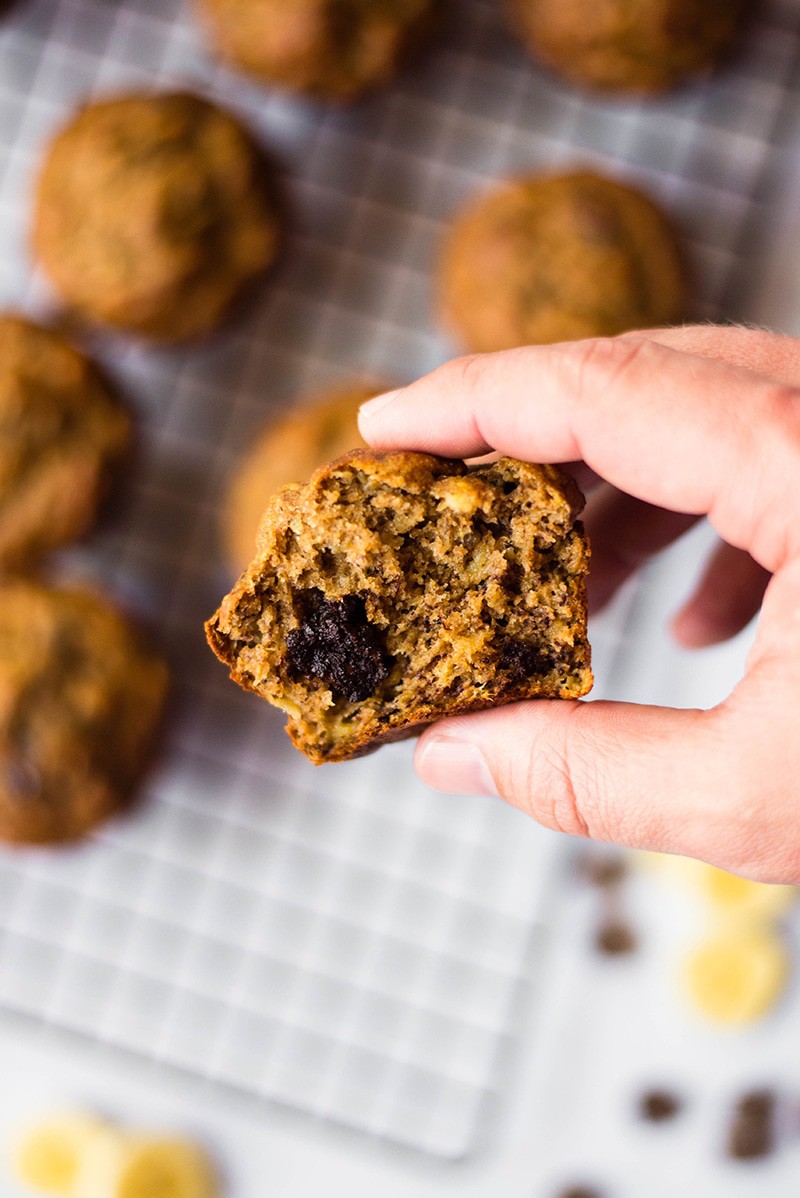
VEGAN PROTEIN SUBSTITUTES
It’s easy to make a small change in your diet if you are looking to increase your plant-based foods intake. Here are some ideas:
- If you are making a sauce where you would typically add ground beef, use textured vegetable/soy protein instead
- Replace your regular toast serving with Ezekiel bread and top with a protein-rich nut butter
- Substitute over-processed white flour with spelt flour in a 1:1 ratio
- Switch out tofu for chicken in your top poultry recipe to see how it absorbs the flavors
- Aquafaba, the liquid found in cans of chickpeas makes an excellent egg substitute
- Another excellent trade for eggs is a chia egg
- Seitan can be substituted for pork in your go-to Asian recipes, absorbing the unique flavors very well
- Replace buttermilk with soy milk and vinegar
- Switch regular pasta for a lentil-based pasta
- Use tempeh instead of ground beef in a hearty, bean-filled chili
Check out my vegetarian meal plan for a great veggie option to get started!
This post contains affiliate links for products I use regularly and highly recommend.
The post Ultimate Guide to The Best Vegan Protein Substitutes appeared first on A Sweet Pea Chef.
https://ift.tt/2FvjTO1This ultimate guide lists 20 of the best vegan protein substitutes, making it easy to ensure you are still getting the all-important protein in your diet.

More people today are looking for vegan and vegetarian options when planning their meals for the week.
I’m totally into meal planning, and I’ll go for vegan or vegetarian dishes once in a while, too. Not only are vegan meals good for the planet, but they are also good for you.
Eating clean, making sure your daily meals have lots of green (think awesome mason jar salads prepped and ready in the fridge!), and including tons of variety are great ways to live a healthy lifestyle.
Choosing vegan protein options isn’t complicated once you know which ones are best. But it is important to know that plant-based proteins aren’t all the same.
Knowing which vegan protein substitutes are the best will help ensure that you get all of the amino acids found in protein. Because these proteins are needed to keep your body functioning at optimum levels. Proteins (both animal and plant-based) are made up of 20 amino acids. Nine of them are called “essential amino acids” and must be obtained by dietary means.
That’s why the right protein sources are so important. I’m going to answer some of your top questions on proteins, so read on to learn more.

WHY IS PROTEIN IMPORTANT?
Protein is one of the three macronutrients, namely carbs, fat, and protein. Sources of energy and crucial to growth, macros are simply the basis for calories. You can make progress toward your best health by simply calculating and working with your macros. BTW, and I’ve made it easy in this post.
Eating protein does a lot of good things for the body. How? Well, almost every part of the body has protein as a component – your hair, skin, blood, and so on. That’s why protein is called a building block of the body. It plays a big part.
If you want to lose weight, protein helps you feel full, allowing you to stay away from unhealthy snacks between meals. If you are a fan of exercise and looking to build muscle while reducing fat, protein is there to help you with that as well.
If you are someone who doesn’t eat animal products or are looking to reduce your consumption for any reason, you should plan ahead to ensure that you get a healthy amount of protein every day.
Why? Protein is essential, folks. If you don’t get enough, you lose muscle mass. Your body can’t repair properly when there is an injury. You could even experience bone fractures more easily when deprived of protein. So, all in all, protein must be a part of your diet every day.

BENEFITS OF PROTEIN
Before I tell you about the best vegan protein substitutes, I want to point out the functions of protein. Don’t allow your protein intake to be lacking. There are lots of ways to easily sneak this super-nutrient into your day. Eat yummy protein bars, whip up a grab and go protein smoothie, or make sure that your afternoon break includes a high-protein snack.
- Protein, along with fat and carbs, provides energy
- Hormones that signal processes to organs rely on protein
- Protein helps your tissues and cells grow and repair
- Immunity is boosted by protein
- Components of the body like enzymes and hemoglobin are benefitted by protein
HOW MUCH PROTEIN DO I NEED?
There is a simple formula to calculate your protein requirements. It’s an excellent way to quickly gauge how much you should aim for. If you weight 145 pounds, your recommended daily requirement of protein is 52 grams. How did we get to that figure? Multiply your weight by 0.36, which is the formula used at a protein summit in Washington, DC, in 2007. Forty nutritionists met to discuss the role of protein in health.

CAN VEGANS GET COMPLETE PROTEINS?
Vegans can totally get the complete protein requirements needed daily. You may have noticed I said complete proteins. Let me explain that a little further.
Amino acids are considered the all-important building blocks of protein. There are 22, 13 of which the body produces on its own. The other 9 are taken from the food we eat.
A complete protein contains the 9 essential amino acids needed to build protein. Not all plant-based proteins are complete, but you can combine foods to make them whole. Although animal proteins are the richest source of complete proteins, you can definitely make it work with vegan protein substitutes. Some combos that make a complete protein are:
- Nut butter on whole-wheat toast
- A whole-grain roll and lentil soup
- Rice and beans eaten together
- Oatmeal topped with pumpkin seeds
Just for your info, combining the incomplete proteins at the same meal is not needed. As long as you have a variety of plant-based proteins daily, you should have your bases covered as far as your essential amino acids.
Briefly, some of the purposes of the 9 amino acids are explained here. You’ll see just how vital eating protein daily is.
- Formation of hemoglobin
- Help skin and bones heal
- Reduce muscle breakdown
- Produce red and white blood cells
- Inhibit viruses
- Reduce cholesterol levels
- Enhance learning and alertness
- Prevent fatty buildup in the liver

TOP VEGAN PROTEIN SUBSTITUTES
Quinoa and soy are the only 2 plant-based proteins that have all of the 9 necessary amino acids. However, if you are not a fan of these foods or have an intolerance, you can look to the additional sources also listed below.
1. QUINOA
In a one cup serving of quinoa, you will get 8 grams of protein. Quinoa is a complete protein, as I mentioned, and is considered a pseudocereal because it does not grow from grasses like other cereal grains. Quinoa is a great source of fiber, magnesium, iron, and more. Quinoa is good at any time of day, even for breakfast!
2. TOFU
Tofu, made from soy, is probably one of the most well-known vegan protein substitutes. Before veganism became as prominent as it is today and being a vegetarian was more well known, tofu was the go-to substitute for meat. Tofu takes on the flavors of the spices and sauces it is cooked with, so it is pretty versatile. A half-cup serving has 11 grams of protein.
3. BUCKWHEAT
Buckwheat is gluten-free and also a pseudocereal. It has 6 grams of protein per one cup serving. The health benefits are many, and this protein is considered anti-inflammatory, anticancer, and beneficial to cholesterol levels. The flavonoids in buckwheat are thought to be responsible for its excellent value.

4. TEMPEH
Tempeh is packed with protein at 15 grams per half cup. Like tofu, tempeh is made from soybeans. The flavor is described as nutty, and it is used in soups, chilis, and even burgers. Tempeh is also considered a probiotic food. Read more about tempeh and other excellent sources of fermented foods.
5. EDAMAME
Edamame beans are kind of sweet. They are immature soybeans and contain 8.5 grams of protein in half a cup. Top your salads with these little protein nuggets for an easy to add boost.
6. LENTILS
Lentils have close to 9 grams of protein in a half cup. They are a great source of fiber, too. Having adequate fiber in your diet is essential for good health. Adequate fiber intake can lower your cholesterol and a whole lot more. For the nitty-gritty on how good fiber is for you and how to get more, read my post here.
7. BEANS
When I say beans, I’m including pinto, kidney, and black beans. Chickpeas are also a bean – you may have heard them called garbanzo beans. Beans contain around 15 grams of protein per cooked cup. That’s why vegans and vegetarians rely on beans as an excellent addition to their eating regimen. They’ve got a ton of vitamins and minerals, too. Try my instant pot black beans ← delicious!
8. GREEN PEAS
When you look at the ingredients in protein powder, you’ll often see pea protein. Peas have 9 grams of protein in a cooked cup serving. Like lentils, they have lots of fiber and are great for adding iron to your day.

9. NUTS AND SEEDS
This is a pretty broad category. Both nuts and seeds have tons of benefits. Off the top of my head, I think of chia seeds. They are good for your heart and your bone health. To learn the 11 benefits of this awesome seed, read my post. As for nuts, well, you’ve got almonds, walnuts, and peanuts, to name a few. Peanuts, for example, have 20.5 grams of protein per one half cup. I like to make peanut butter as a yummy source of protein. My recipe has honey, but you could use maple syrup instead to keep it pure vegan.
10. SPIRULINA
Spirulina typically comes as a powder or supplement. Add it to your favorite smoothie or top your salad with it. Not only is spirulina a good plant-based protein source, but it also has anti-inflammatory properties and boosts your immunity.

11. POTATOES AND OTHER PROTEIN-RICH VEGGIES
There are many vegetables with protein. Broccoli, mushrooms, kale, and baked potatoes are just a few. Make a salad with broccoli flowerets, kale, spinach, and beans sprouts. Top it with quinoa and chia seeds. That’s a protein-packed salad!
12. PROTEIN-RICH FRUITS
Although the protein count is lower, you can rely on some of the common fruits for a boost. Every now and then, grab a banana or nectarine, or toss a handful of blackberries on a serving of overnight oats.
13. OATS AND OATMEAL
Another great combo of fiber and protein is oats. Not only do they have about 10 grams in a cup serving, but they also have iron, zinc, B vitamins, and phosphorous. They are considered the healthiest grain.
14. SEITAN
Wheat gluten is the main component of seitan, so it is not a suitable vegan protein substitute for those intolerant to gluten or celiac sufferers. Two ounces of seitan has 15 grams of protein. Veggie burgers and other meat alternatives often contain seitan.
15. TEXTURED VEGETABLE/SOY PROTEIN
Defatted soy flour undergoes pressure cooking and dehydration to become textured vegetable/soy protein. It’s similar to tofu in that it does not have a lot of flavor, making it an excellent addition to many dishes. The protein content in a one quarter cup is 12 grams.

16. GRAINS
Grains like wild rice, brown rice, and barley do contain protein. I would suggest using them as a complement to your other vegan and vegetarian protein choices. Wild rice is not stripped of the bran, which means it packs a decent amount of fiber per serving. As for protein, one cooked cup has 7 grams of protein. Make a point to rinse the rice before cooking because there is some concern about the trace toxic element arsenic if eaten often.
17. SOY MILK
Many vegans and vegetarians turn to soy milk as a replacement for dairy. One cup of soy milk has 7 grams of protein and is also a great way to add calcium and vitamin D to your diet. Studies show that soy may help your mood and benefit your skin, among other things.
18. EZEKIEL BREAD
Sprouted whole grains and good-for-you legumes are used to make Ezekiel bread. Lentils, barley, spelt, and millet are other healthy ingredients. Two slices can contain 8 grams of protein. Ezekiel bread, because of the sprouted grains, has the all-important lysine and tryptophan, two of the 9 essential amino acids obtained in plant-based foods.
19. SPELT
Spelt is an ancient grain with a hefty protein content. One cooked cup has 10 grams of protein. You can use spelt like oatmeal or use it in my favorite way, which is in baking. I’ll fill you in on how to use spelt flour here. Then, try making my Healthy Banana Chocolate Chip Muffins!
20. NUTRITIONAL YEAST
Nutritional yeast is ideal in that it’s a pretty popular substitute for parmesan cheese. It has a great cheesy flavor and has 14 grams of protein per ounce. Make sure you buy a fortified version to get your B12, zinc, manganese, and magnesium.

VEGAN PROTEIN SUBSTITUTES
It’s easy to make a small change in your diet if you are looking to increase your plant-based foods intake. Here are some ideas:
- If you are making a sauce where you would typically add ground beef, use textured vegetable/soy protein instead
- Replace your regular toast serving with Ezekiel bread and top with a protein-rich nut butter
- Substitute over-processed white flour with spelt flour in a 1:1 ratio
- Switch out tofu for chicken in your top poultry recipe to see how it absorbs the flavors
- Aquafaba, the liquid found in cans of chickpeas makes an excellent egg substitute
- Another excellent trade for eggs is a chia egg
- Seitan can be substituted for pork in your go-to Asian recipes, absorbing the unique flavors very well
- Replace buttermilk with soy milk and vinegar
- Switch regular pasta for a lentil-based pasta
- Use tempeh instead of ground beef in a hearty, bean-filled chili
Check out my vegetarian meal plan for a great veggie option to get started!
This post contains affiliate links for products I use regularly and highly recommend.
The post Ultimate Guide to The Best Vegan Protein Substitutes appeared first on A Sweet Pea Chef.
Lacey Baier